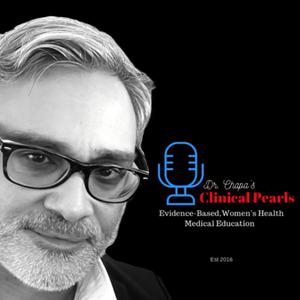
Dr. Chapa’s Clinical Pearls.
Dr. Chapa’s Clinical Pearls
Relevant, evidence based, and practical information for medical students, residents, and practicing healthcare providers regarding all things women’s healthcare! This podcast is intended to be clinically relevant, engaging, and FUN, because medical education should NOT be boring! Welcome...to Clinical Pearls.
- 38 minutes 19 secondsEclampsia = Brain Scan?
According to the ACOG, eclampsia is a low frequency, high acuity emergent condition. The rate of an eclamptic seizure is 1/200 in those with preeclampsia without severe features but is 4 fold higher ( 4/200 ) in those with preeclampsia with severe features. Traditionally, “textbook eclampsia” management did not include cranial imaging. However, that consensus is changing! In this episode, we will review data making the case for a standardized approach to eclampsia, which includes universal non-contract cranial CT after eclampsia. We will highlight a Clinical Expert Series ACOG publication from July 2024 as well as an upcoming publication from Pregnancy Hypertension in March 2025 which makes the strong case for this radiological diagnostic tool. Listen in for details.
4 February 2025, 12:00 pm - 40 minutes 9 seconds“Sounds Reasonable”! 3 Things to Consider.
Well, in this episode we have a “3-in-1” subject review. Often in medicine, we find ourselves with some data to guide us, but definitely not a “predominance of evidence”. So in caring for our patients, we often come to the conclusion that doing a course of action can possibly help, and can't hurt... and therefore our plan “sounds reasonable”. That's the focus of our episode today! We're going to have fun with this one and cover three topics where we do have some data to guide us, but not our predominance of data that the dot leaving us to conclude that a plan of action “sounds reasonable”. 1. Can nitrous oxide be used for IUD/IUS insertion? 2. Should we follow total serum bile acids serially for ICP (new Jan 2025 data)? 3. And if IM Ceftriaxone is recommended as first-line RX for gonorrhea, can we give expedited partner therapy as an oral medication? Listen in for details!
1 February 2025, 6:54 pm - 38 minutes 23 secondsNo Need for PP LMWH VTE Prophylaxis?
Venous thromboembolism (VTE), which includes deep vein thrombosis and pulmonary embolism, is responsible for 9–30% of pregnancy-related mortality in high resource countries and remains a significant, increasing cause of severe maternal morbidity. Peripartum, 50% of VTE events occur in the postpartum interval, which has a 6-fold higher risk compared to antepartum. There is wide variation in LMWH pharmacological postpartum prophylaxis guidance. The RCOG, for example, recommends 10 days of LMWH for all postop CS patients unless it was elective, and additional risk factors exist. The ACOG uses a more selective approach. However, on Jan 16, 2025, a new multicenter retrospective study from the US is raising questions about the efficacy of postpartum VTE pharmacologic therapy. Is there really no need for pp VTE pharmacologic therapy? Or does the answer lie in the reality of VTE as a “low frequency, high acuity” event? Listen in for details!
28 January 2025, 12:17 am - 30 minutes 5 seconds"CNN" Update (Chapa News Network): 1. ACOG RSV-GBS Response, 2. TRD
This- is-CNN. No, that THAT CNN...This is Chapa News Network! WE have late-breaking news developments on 2 fronts: 1. The ACOG has released a clinical update (ACOG ROUNDS) in response to a recent study associating the RSV vaccine and GBS (we covered this study in a past episode). 2. The FDA has EXPANDED the label for an intranasal therapy for Treatment Resistant depression (TRD). Listen in for details.
24 January 2025, 9:57 pm - 40 minutes 29 secondsIs Sleep Position REALLY Linked to Stillbirth?
Around a third of a person’s life is spent asleep. Previous studies have reported an association between sleep disordered breathing, like OSA, and pregnancy complications such as pre-eclampsia, gestational diabetes, and preterm birth. We recently discussed a stillbirth bundle from Australia which includes patient education on sleeping practices and stillbirth risk. Does maternal sleeping position ready influence stillbirth risk? Some data says NO, but there’s a catch to those. Other population level data says YES. Why the difference? And why is the position the mother STARTS to sleep very important here? Listen in for details as we walk down the timeline of data from 2011 to present day.
23 January 2025, 5:19 pm - 29 minutes 15 secondsExternal Aortic Compression: Buying Time in Pelvic Hemorrhage
Internal manual aortic compression is a procedure that may be used intraoperatively in the management of massive pelvic bleeding. But what about EXTERNAL aortic compression? In February’s 2025 AJOG (Grey Journal), under their Surgeon’s Corner section, there will be a very nice video recap of an easy to adopt maneuver which may “buy time” in OB hemorrhage cases as surgical intervention is being planned. This is called the EAC maneuver. First described in 1994, this technique has regained the spotlight as rates of PPH have been on the rise. How is EAC done? Does it work? If so, why is this not part of the OB Hemorrhage bundle? Listen in for details.
21 January 2025, 6:23 pm - 30 minutes 10 secondsThe Miracle Med in Menses? MenSCs.
Mesenchymal stem cells (MSCs) are multipotent adult stem cells which can differentiate into multiple cell types. MSCs can be isolated from the bone marrow, umbilical cord blood, adipose tissue, muscle, and dental pulp. However, the use of these MSCs involves a number of barriers. Human umbilical cord is limited to collection at birth. Bone marrow and fat biopsy are painful and requires general anesthesia. If only there was an easily obtainable method to collect these MSCs, like maybe even once a month, collectable in a little cup, without biopsy. WHAT… use menstrual blood you say?! Menstrual blood-derived mesenchymal stem cells (MenSCs) were first described by Meng et al. in 2007, as a novel source of MSCs. Most of the MenSC are produced by the endometrium. With the potential of multi-directional differentiation, this has spurred a list of preclinical and animal studies looking into the collection of menstrual blood for MSC processing. Men SCs have been investigated for use in Alzheimer’s disease, Stroke, Spinal Cord Injury, Type I DM, wound healing, endometriosis therapy, infertility, and even Muscular Dystrophy. Is there a miracle med in menses? Listen in for details.
20 January 2025, 12:11 am - 36 minutes 20 secondsMaternal Tachycardia: When to Eval.
Tachycardia in pregnancy is common and distinguishing between physiological and pathological causes can be a challenge. Plus, until recently, there had not been a well-defined or universally accepted definition of the upper limit of normal for heart rate in pregnancy. But a study published in 2020 from the Green Journal, from the NHS in London has shed light on this issue. The finding of persistent tachycardia beyond a certain rate (and we’ll discuss that rate in this episode), regardless of symptoms, should prompt a search for potential etiologies and at least some basic investigations. Of course, any tachyarrhythmia in pregnancy causing hemodynamic instability requires urgent cardioversion as per adult life support guidelines. In 2023, The Heart Rhythm Society (HRS) developed expert consensus guidelines in collaboration with the American College of Cardiology (ACC), the ACOG, and the AHA to address arrhythmias in pregnancy. In this episode we will focus on and review maternal tachycardia. Does HR really increase by “10-20%” in pregnancy as we all were taught? What heart rate is generally considered evaluable? And what’s the suggested evaluation? Listen in for details.
17 January 2025, 1:12 pm - 30 minutes 41 secondsTime for Stillbirth Prevention Bundle: NOW.
The stillbirth rate in the US is considerably higher than in many countries with similar resources. In 2021, the United States stillbirth (loss before birth at ≥20 weeks’ gestation) ratio was 5.73 per 1000 births or 1 in 175 pregnancies with 21,000 stillbirths occurring annually. Contrast that to the rate in Japan which is 1.6/1000! The UK and Australia have both implemented stillbirth prevention bundles which have proved worthwhile. It is long past due for the US to have its won national stillbirth prevention bundle. In this episode we will review a publication from Aug 2024 (AJOG) describing this bundle proposal and highlight a letter to the editor from January 9, 2025 in the AJOG in response to that August publication. Listen in for details.
13 January 2025, 12:00 pm - 34 minutes*FDA Warning*: RSV Vacc and GBS (Breaking it Down)
Guillain-Barré syndrome (GBS) is a rare disorder that causes muscle weakness and sometimes paralysis. It's caused by the body's immune system damaging nerves. While most cases are triggered by respiratory or gastrointestinal infections, vaccinations have also been linked to GBS pathogenesis. GBS can last from weeks to years, but most people start to recover within a few weeks. The earlier symptoms improve, the better the outlook. Physical therapy is important to prevent muscle contractures and deformities. Some people may experience long-term weakness, numbness, fatigue, or pain. A small percentage of people with GBS may have a relapse, which can cause muscle weakness years after symptoms end. On Jan 7, 2025, the FDA required and approved UPDATED safety labeling changes to the Prescribing Information for Abrysvo (Respiratory Syncytial Virus Vaccine) manufactured by Pfizer Inc. and Arexvy (Respiratory Syncytial Virus Vaccine, Adjuvanted) manufactured by GlaxoSmithKline Biologicals. Specifically, FDA has required each manufacturer to include a new warning about the risk for Guillain-Barré syndrome (GBS) following administration of their Respiratory Syncytial Virus (RSV) vaccine. Who is most at risk for GBS? Where pregnant women affected? This is important information….listen in for details.
10 January 2025, 6:18 pm - 21 minutes 19 secondsResponse to 2 New Pubs: “Ya Don’t Say?!” (Sarcasm Added)
Sometimes you read a new study and you just have to say, "You Don't Say?!" In this episode, we will highlight 2 publications which were released Dec 26. 2024 and Jan 6, 2025 which make you say just that. This is a brief, fun, YET STILL EDUCATIONAL, episode...Listen in for details.
8 January 2025, 5:44 pm - More Episodes? Get the App
Your feedback is valuable to us. Should you encounter any bugs, glitches, lack of functionality or other problems, please email us on [email protected] or join Moon.FM Telegram Group where you can talk directly to the dev team who are happy to answer any queries.
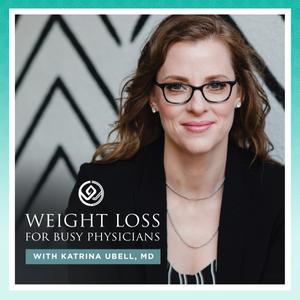 Weight Loss for Busy Physicians
Weight Loss for Busy Physicians
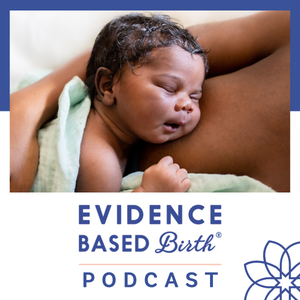 Evidence Based Birth®
Evidence Based Birth®
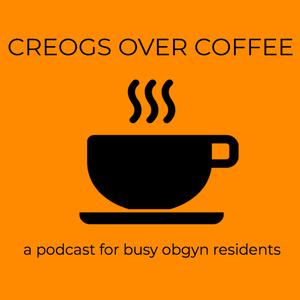 CREOGs Over Coffee
CREOGs Over Coffee
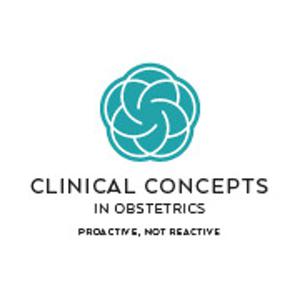 The Critical Care Obstetrics Podcast
The Critical Care Obstetrics Podcast
 Obstetrics & Gynecology: Editor's Picks and Perspectives
Obstetrics & Gynecology: Editor's Picks and Perspectives